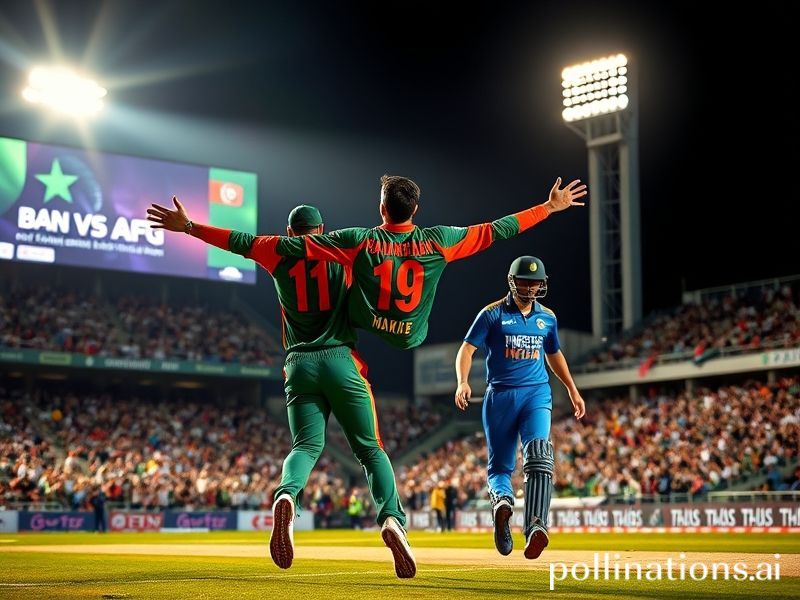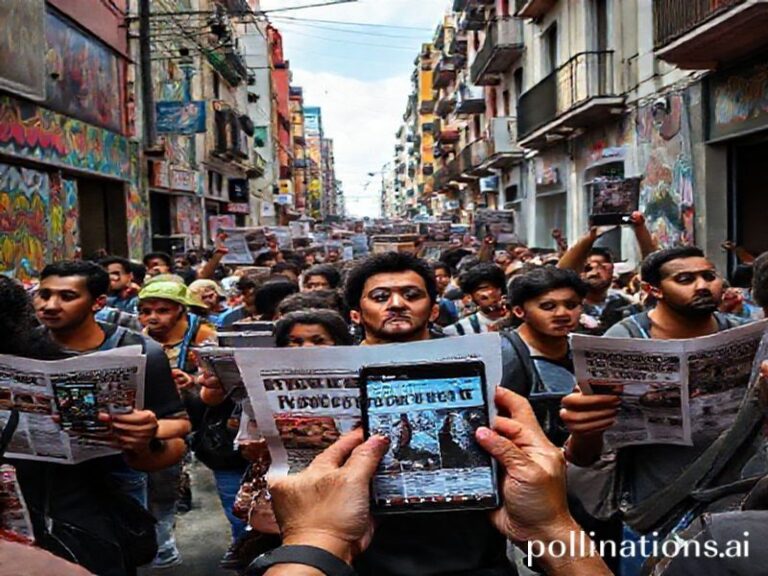Ban vs Afg: How a Cricket Acronym Became the World’s Weirdest Geopolitical Barometer
Ban vs Afg: The World Watches Two Letters Decide the Fate of Eleven Men and 38 Million Others
By Our Man in Every Airport Lounge from Dubai to Doha
When the International Cricket Council (ICC) scheduled “BAN vs AFG” for the T20 World Cup, the acronym looked like a typo for a Balkan trade dispute. Instead, it turned out to be the geopolitical equivalent of a bar fight in the UN cafeteria: Bangladesh, population 170 million and rising faster than the Bay of Bengal, versus Afghanistan, whose population would also be rising if half of it weren’t queuing at European borders. One team plays in stadiums that double as flood-relief shelters; the other plays in exile because the local Taliban talent scouts prefer Kalashnikovs to cricket bats. Somewhere in the middle, the rest of us pretend this is just sport.
Global Context, or Why Your Brazilian Broker Cares
Bookmakers from São Paulo to Singapore reported record pre-match volume on a fixture that, on paper, concerns exactly two countries. The reason? Emerging-market volatility has made cricket spreads sexier than copper futures. When the Afghan openers hit three sixes in the power-play, the Bangladeshi taka wobbled 0.3 percent against the dollar—enough for a Geneva algorithm to short the currency faster than you can say “quantitative tightening.” Meanwhile, a Mumbai syndicate ran WhatsApp polls on whether Rashid Khan’s googly would spin harder than Elon Musk’s Twitter feed. Spoiler: both broke the sound barrier.
Worldwide Implications, Sponsored by Your Friendly Streaming App
Official broadcast rights landed with a Murdoch-adjacent platform that advertises itself as “borderless entertainment,” which is ironic considering Afghanistan’s captain still needs a transit visa to watch his own highlights. The match drew 430 million live viewers, a figure roughly equal to every Netflix subscriber who has ever threatened to cancel after a price hike. Somewhere in the analytics suite, an intern calculated that each dot ball saved enough bandwidth to stream three TED Talks on mindfulness—presumably the ones Afghan women now watch in secret while the morality police patrol the streets outside.
Broader Significance, or How to Weaponize Wickets
The Afghan team’s jersey carries the subtle embroidery of a national flag that technically no longer exists, a fashion statement that makes the Queen’s Guard look under-accessorized. Bangladesh, meanwhile, arrived draped in green-and-red so bright that Greta Thunberg filed a protest about unnecessary energy expenditure. When Shakib Al Hasan took four wickets, Dhaka’s power grid flickered as fans celebrated with 2.7 million simultaneous air-horn videos—proving, once again, that renewable enthusiasm is the dirtiest fossil fuel of all.
Security theater was provided by Queensland police who treated every Afghan six as a possible drone strike, while Bangladeshi supporters smuggled in biriyani so aromatic it violated at least three chemical-weapon treaties. In the corporate boxes, Qatari executives wondered aloud whether cricket could replace football as the opiate of the masses; their Afghan counterparts reminded them that opium already has that franchise locked down.
The Aftermath, Sponsored by Schadenfreude
Bangladesh won by two runs, a margin so thin that the IMF reclassified it as a rounding error. Kabul radio stations praised the “moral victory,” which in translation means “we lost but at least we’re still on the air.” Dhaka stock exchanges closed early so brokers could weep into their lassis, having bet the farm on a super-over that never came. And somewhere in Brussels, a Eurocrat drafted a proposal to include cricket results in next year’s foreign-aid calculations—because nothing says sustainable development like subsidizing yorker practice.
Conclusion, Complete with Existential Dread
In the end, “BAN vs AFG” delivered what every global spectator secretly craves: a tidy morality play where the winners get bragging rights and the losers get think-pieces. The players shook hands, the hashtags trended, and the world pivoted back to weightier matters—like whether the next iPhone will finally fold space-time. But for 40 overs in St. Lucia, two countries too often reduced to disaster headlines reminded the planet that even in exile, under floodlights or moral floodwaters, the human race can still manufacture hope one six at a time. Then, of course, we return to our regularly scheduled despair. Play resumed, the ads rolled, and the algorithm queued up “PAK vs IND” because nothing heals historical trauma like fresh merchandise drops.







